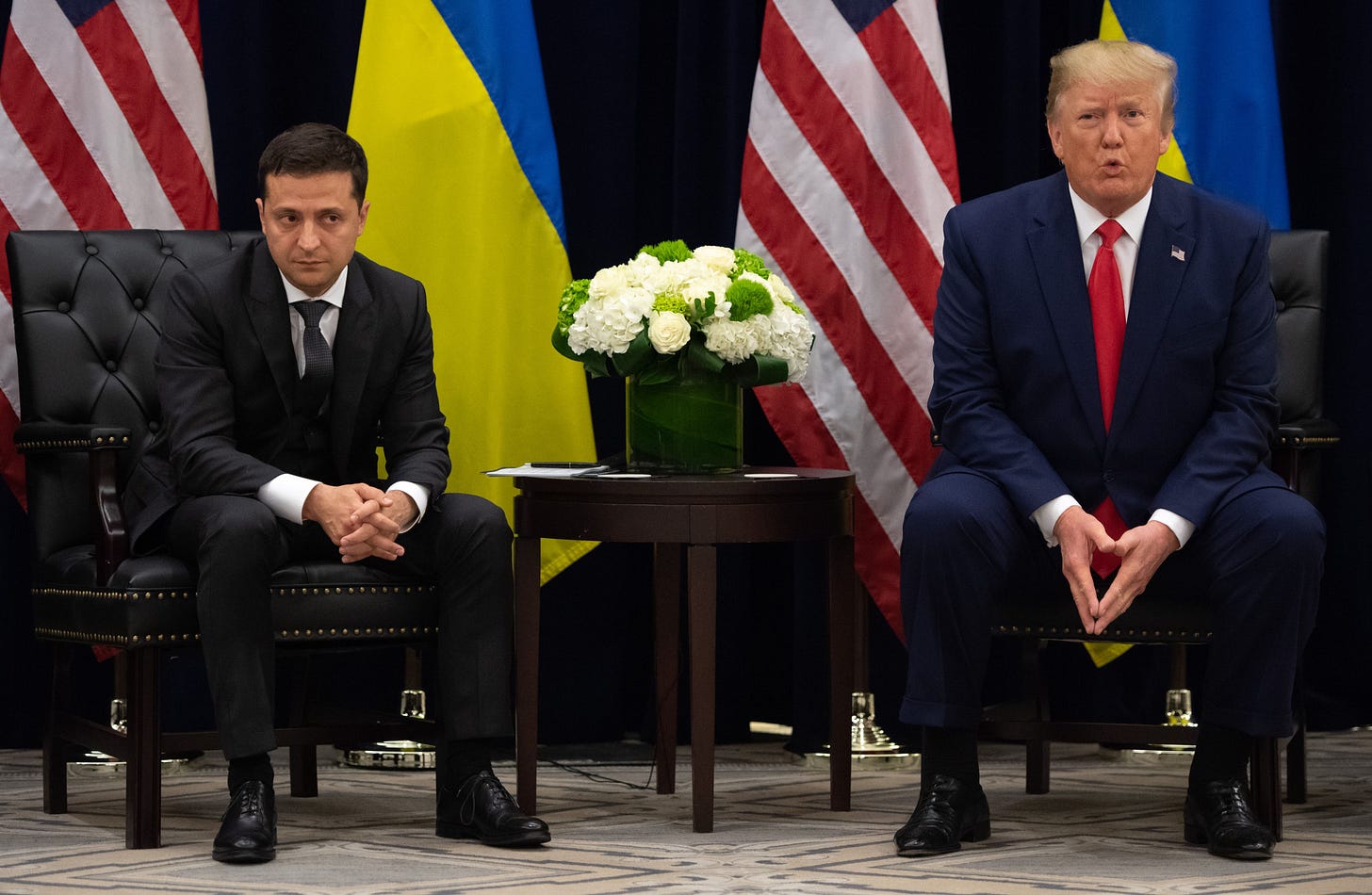Foreign Policy and the Right
What do Republicans think about America’s role in the world? Lots of clashing, contradictory things!
News of right-wing insurrectionary violence in the capital of Brazil broke as I was nearing a completed draft of the following post. Rather than set it aside and attempt to throw together something on fluid events in Brasilia, I decided to stick with my original plans for Monday’s post. Depending on how things unfold over the next day or so, I may circle back to Brazil for Wednesday.
I’ve been putting out this newsletter for seven months now, and I’ve barely said a word about foreign policy. There are a couple of reasons why.
Chaos on the Right
For one thing, the right is at war with itself over what America’s relationship with the world should be, making it difficult to grapple with the question of what Republicans want in international affairs.
One camp is defined entirely by the person and policies of Donald Trump. As president Trump was a pure transactionalist in both the geopolitical and personal senses. He thought foreign policy should be about advancing American interests, with the scope and shape of those interests largely determined by his own personal, financial advantage, and moral considerations (human rights and democracy in other countries) playing no role at all.
The Trump administration’s foreign policy was also a function of the president’s all-pervasive tendency to think and act on impulse. That’s how he ended up repeatedly saying nice things about Russian President Vladimir Putin while his own administration imposed stiff sanctions on Moscow. Trump also took a very hard line against Iran while treating North Korean dictator Kim Jong-un like an old pal. None of it followed from a coherent geopolitical strategy. That’s why I think those on the right who see Trump as some kind of guarantor of, well, anything at all in foreign policy are sorely mistaken.
Others on the right are equally indifferent to morals in foreign policymaking but define our interests more broadly than the Trump Organization’s bottom line. There are a lot of China hawks in this camp, as well as plenty who like to rattle swords about North Korea and Iran while expressing skepticism about the extent of our aid to Ukraine in its war with Russia, which they tend to see as weakening our hand in East Asia.
Still others (“restrainers”) appear to be full-spectrum foreign policy minimalists who ally with some on the left in challenging the idea of American “primacy” and ultimately favoring significant defense cuts and a pullback from our myriad commitments around the world. Though sometimes hesitant to say it out loud in quite so many words, many in this camp think we should stop supporting Ukraine in its war with Russia, reduce our support for NATO more generally, and make clear to China that we have no intention of risking World War III over Taiwan.
Finally, at the other extreme, there are all those on the right who, despite the many other changes that have taken place in the Republican Party over the last 6-7 years, gave Ukrainian President Volodymyr Zelenskyy repeated standing ovations during his recent speech to Congress, showing they continue to follow the example of Ronald Reagan in their idealistic internationalism.
Many of these are maximalist hawks, who tend to think the U.S. should be doing everything, everywhere: We should have stayed in Afghanistan and Iraq; we should be seeking regime change in Iran; we should stand up to China over Taiwan; we need to take down Kim Jong-un in North Korea; and we need to assure that Ukraine not only prevails against Russia but hands Putin a humiliating defeat that ends with him being overthrown in a coup. This camp overlaps with many on the center-left, including Never Trump neoconservative refugees from the GOP who now vote for and sometimes even advise Democrats on foreign policy.
In other words, things are a mess on the right. And that’s a source of vulnerability for the United States in its dealings with the world, since allies and rival powers alike know that a Republican winning the White House could portend foreign policy reversals on multiple fronts around the globe. That makes us a far less reliable partner and source of stability than we have been in the past.
Changing Circumstances
Which brings me to the second reason I haven’t raised these issues at “Eyes on the Right” until now.
Keep reading with a 7-day free trial
Subscribe to Notes from the Middleground to keep reading this post and get 7 days of free access to the full post archives.



